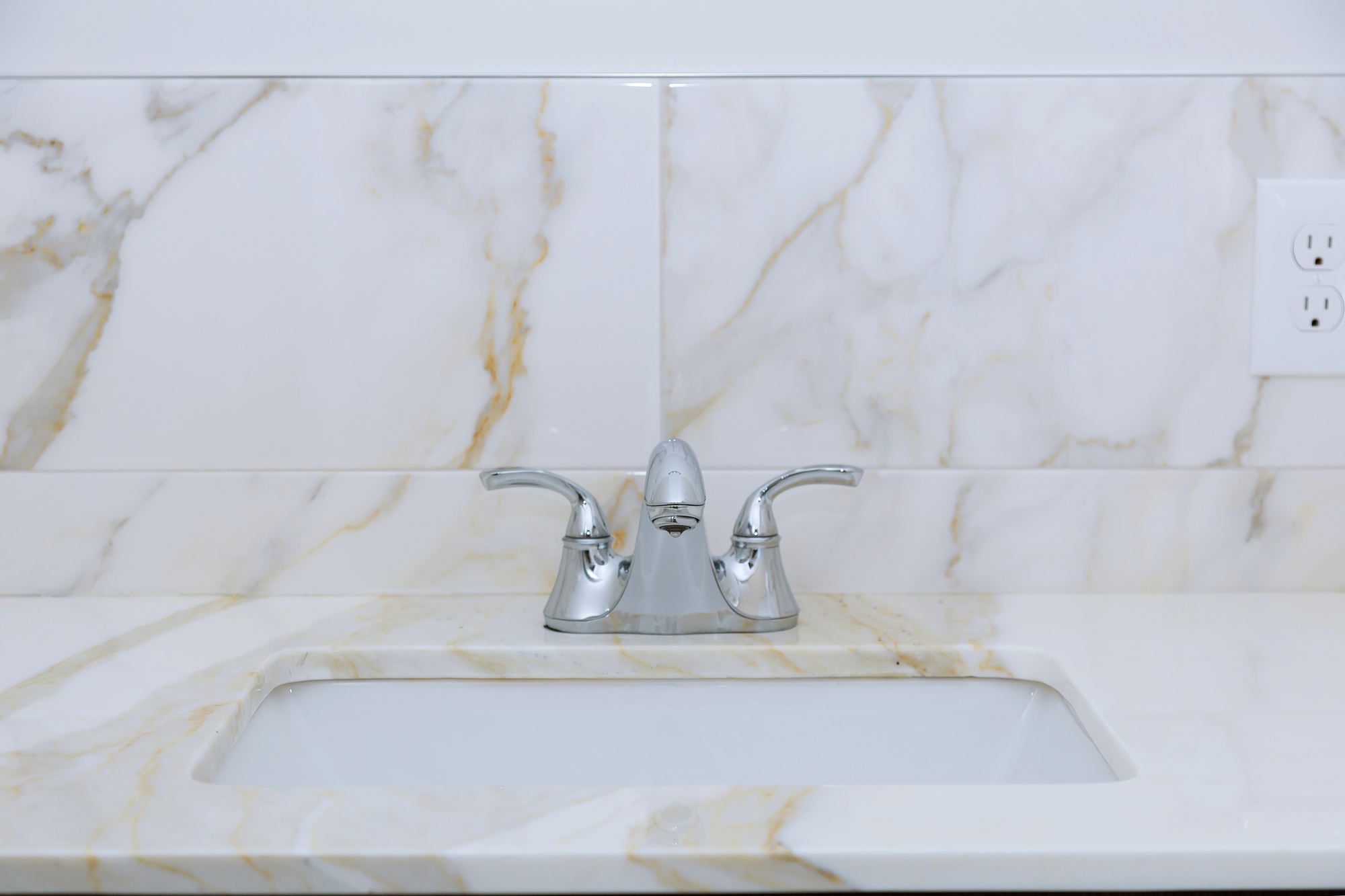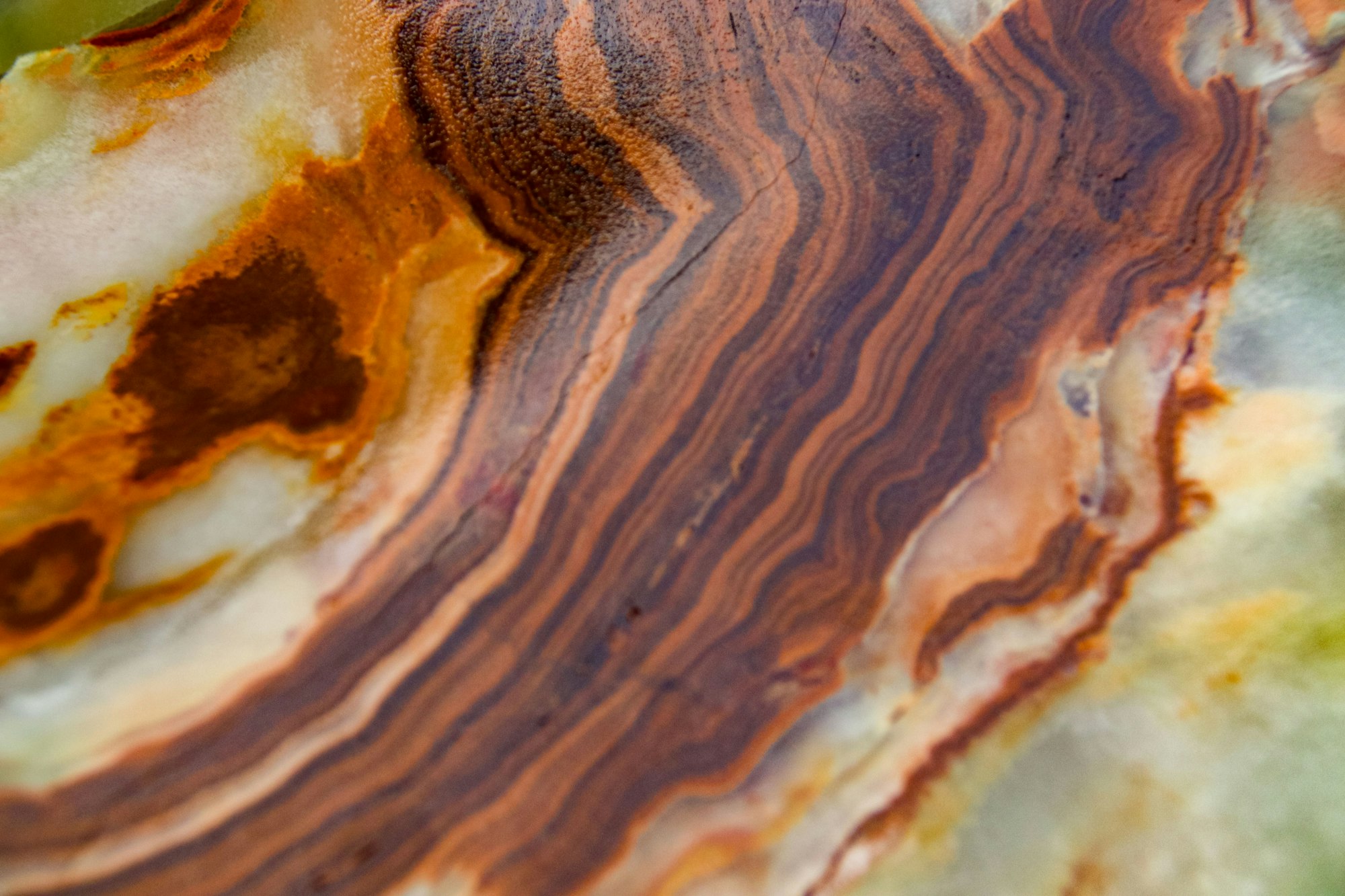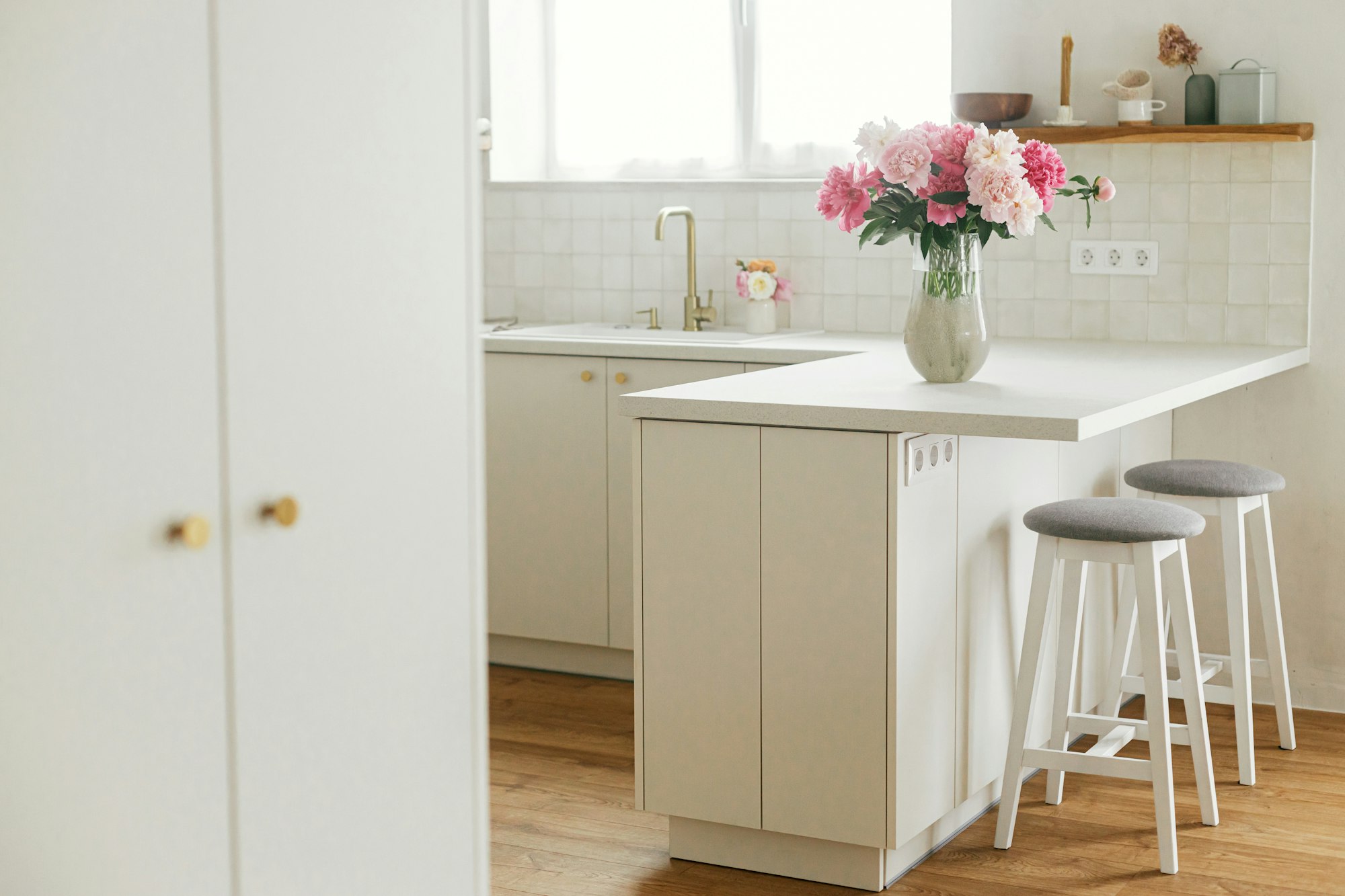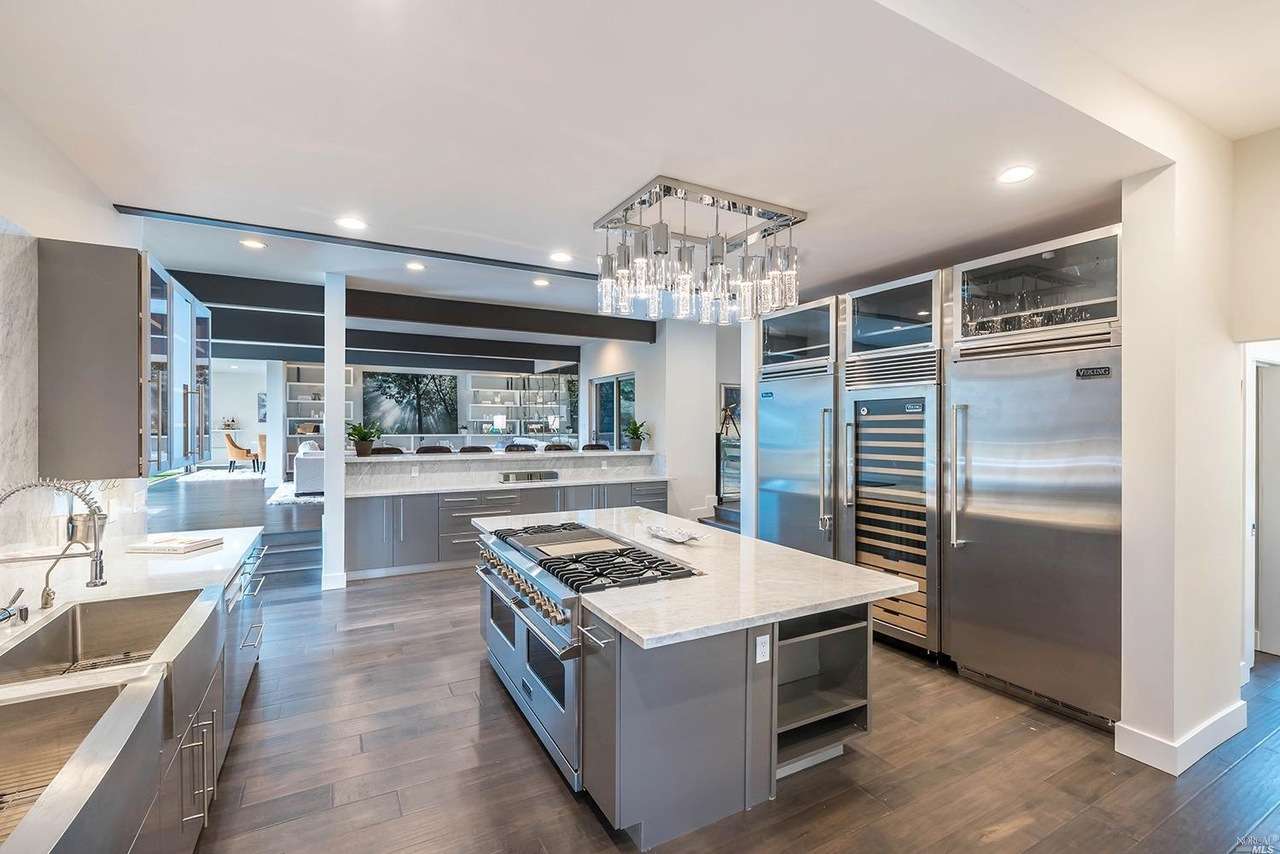
Marble countertops are a timeless choice for homeowners seeking to add elegance and sophistication to their kitchens. This natural stone is renowned for its luxurious appeal, durability, and versatility.
When selecting marble for countertops, one of the most important decisions is choosing between a honed or polished finish. Both honed and polished marble offer unique characteristics that can significantly impact the look, feel, and functionality of your kitchen.
In this comprehensive guide, we’ll explore the key differences between honed and polished marble countertops, discuss the benefits and drawbacks of each finish, and help you determine which option is best suited for your needs.
Honed marble refers to a countertop finish that has been ground down to create a smooth, matte surface with little to no shine. This process removes the glossy, reflective layer typically associated with marble, resulting in a more understated appearance. Honed marble has a soft, velvety texture and is often favored for its subtle, natural look.
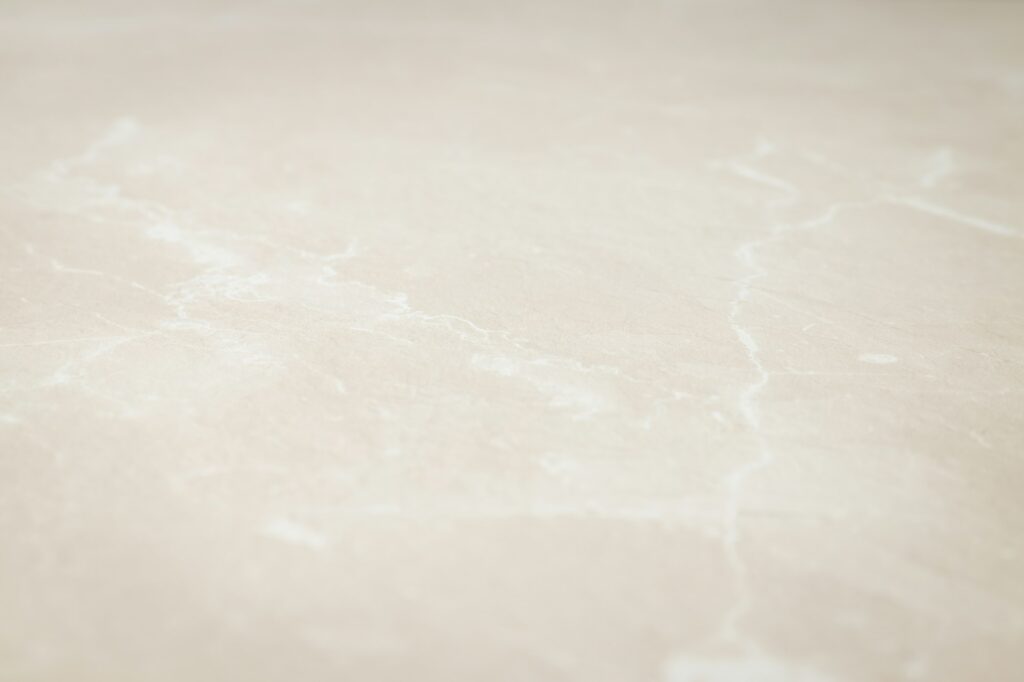
Honed marble is perfect for homeowners who want a more relaxed, natural look in their kitchens. Its subtle appearance and scratch-resistant surface make it ideal for high-traffic areas, particularly in households with children or pets. Additionally, honed marble works well in kitchens where functionality and durability are prioritized over a high-gloss, luxurious appearance.
Polished marble countertops, on the other hand, are known for their glossy, reflective finish that showcases the natural beauty of the stone. The polishing process involves grinding the surface of the marble to a smooth, mirror-like finish, which enhances the color and veining of the stone. Polished marble is synonymous with luxury and is often associated with high-end kitchen designs.
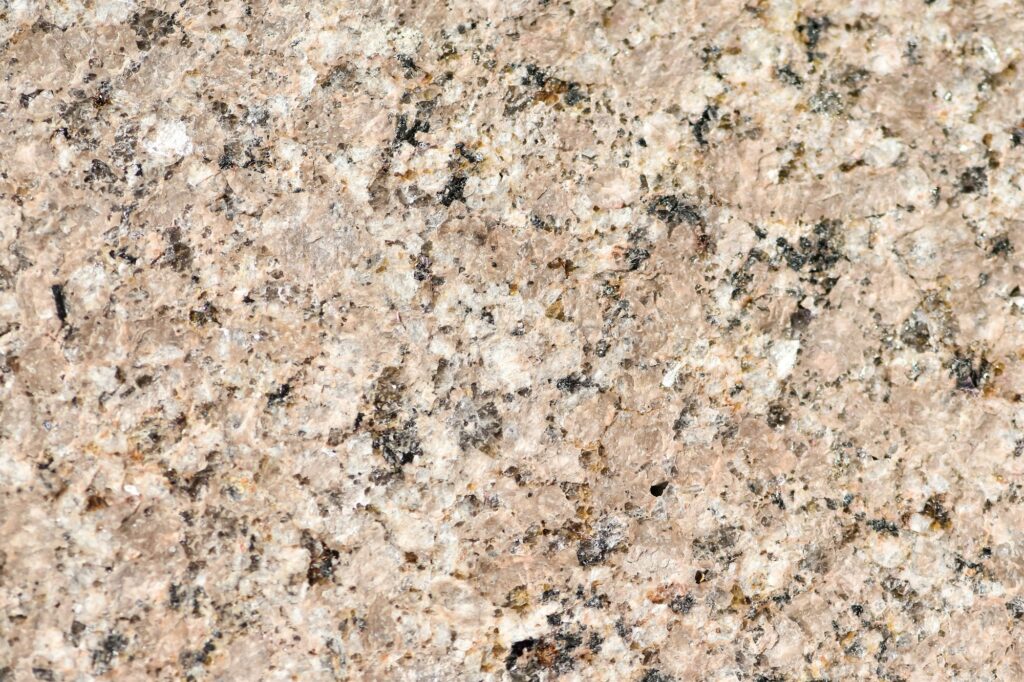
Polished marble is best suited for kitchens where aesthetics and luxury are the top priorities. If you want your kitchen to make a statement and showcase the natural beauty of marble, a polished finish is the way to go. However, polished marble may not be the best choice for households with heavy kitchen use, as it is more prone to scratching and etching.
Choosing between honed and polished marble countertops ultimately depends on your personal preferences, lifestyle, and the overall design of your kitchen. Here are some factors to consider when making your decision:
| Factors | Honed Marble | Polished Marble |
|---|---|---|
| Aesthetic Preferences | Matte, understated look Soft, natural appearance that complements a wide range of design styles. | Glossy, high-end finish Reflective surface adds a touch of luxury and enhances the stone’s veining and patterns. |
| Maintenance and Durability | More forgiving with scratches and stains Practical for high-traffic kitchens but requires regular sealing to prevent etching. | Easier to clean and more resistant to liquid absorption More prone to visible scratches and etching and requires regular sealing and careful maintenance. |
| Functionality | Suitable for heavy use, spills, and potential scratching Durability makes it a practical choice for everyday kitchen use. | Better for kitchens as a showpiece Luxurious look, but may require more maintenance investment. |
The cost between honed and polished marble can vary depending on several factors such as the marble’s origin and the supplier. However, generally, the finishing process may not significantly affect the price. It’s best to compare costs per project.
Yes, honed marble can be polished if you decide to change its finish later. However, it requires professional polishing to ensure the marble maintains its integrity and beauty.
Polished marble is more resistant to staining due to its shiny and coated surface, but it is not stain-proof. Spills should be cleaned promptly to prevent staining.
Honed marble tends to hide scratches and etches better, making it easier to maintain in appearance. Polished marble, while more resistant to spills, can show scratches more easily.
Yes, both honed and polished marble can be used in high-traffic areas. However, honed marble may be more suitable as it is less slippery and more forgiving of wear and tear.
Both honed and polished marble countertops offer unique benefits and drawbacks, and the choice between them comes down to your personal style and how you plan to use your kitchen.
Honed marble is perfect for those who want a more casual, natural look with better resistance to scratches and stains. On the other hand, polished marble is ideal for homeowners seeking a high-gloss, luxurious finish that highlights the stone’s natural beauty.
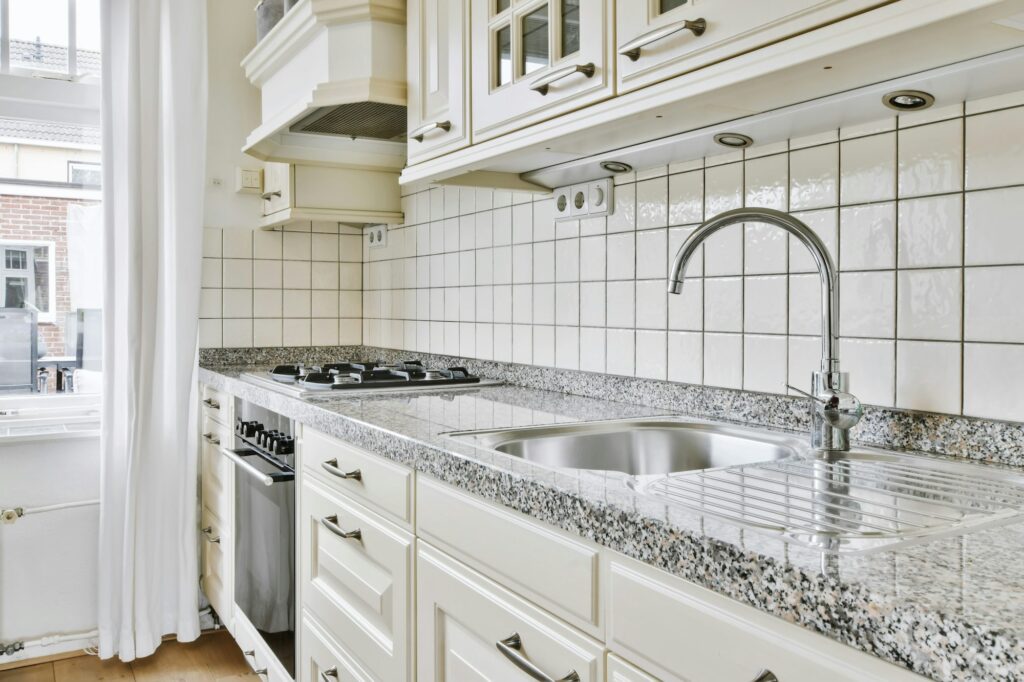
At DC Tile and Stone, we offer a wide selection of high-quality honed and polished marble countertops to fit any kitchen design. Whether you’re drawn to the soft, matte finish of honed marble or the elegant, glossy appeal of polished marble, our expert team can help you choose the perfect option for your home.
Our experienced professionals ensure flawless installation and can guide you through the process of selecting the right marble finish for your kitchen. With a commitment to quality and customer satisfaction, DC Tile and Stone is your trusted partner for all your countertop needs. Contact us today to explore our stunning marble collection and bring your kitchen vision to life!
